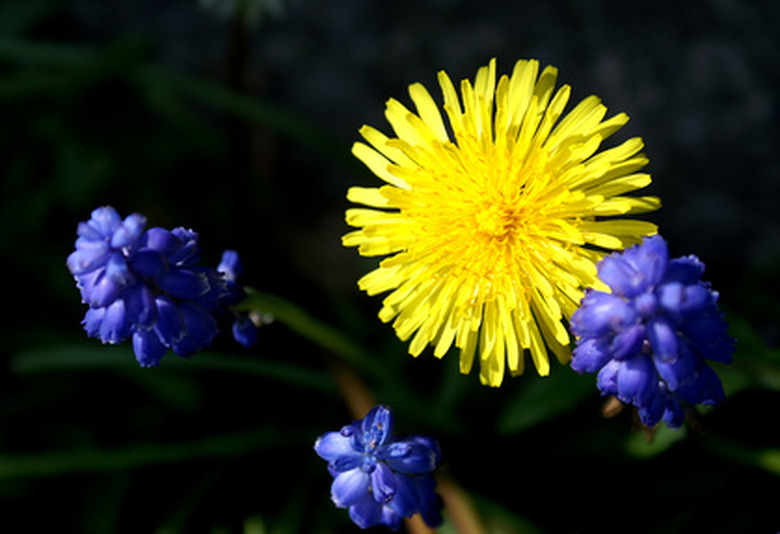Bleach As A Weed Killer
Weeds are the bane of most gardeners, but they do have a purpose, according to "Fine Gardening" magazine. Weeds act as a band-aid on soil that's been cultivated or is for some reason bare. They prevent soil erosion and moisture loss. While some gardeners recommend bleach for killing weeds, other methods are safer and more effective. The best way to outsmart weeds is to keep soil covered with healthy plants or mulch.
Bleach as Weed Control
Some gardeners use chlorine bleach to kill weeds, although its effectiveness hasn't been proven. The theory is that bleach will alter the pH level of a plant enough to kill it. The recommended protocol is to mist the plant with a weak solution (4 percent) of bleach in water. As with all herbicides, bleach is most effective on young plants and when applied on a cloudless, windless day.
- Weeds are the bane of most gardeners, but they do have a purpose, according to "Fine Gardening" magazine.
- As with all herbicides, bleach is most effective on young plants and when applied on a cloudless, windless day.
Considerations
Chlorine bleach damages any plant it touches, so care must be taken to only spray the desired weeds. Bleach may stain clothing and cause irritation to eyes and skin. It quickly oxidizes in the sun and requires several applications.
Warning
Chlorine bleach is more toxic than glyphosphate, the active ingredient in many herbicides, including Roundup. According to the Pittsburgh Post-Gazette, the toxicity level of chlorine bleach, when tested on laboratory animals, most likely rats, was more than 20 times more toxic, in fact.
Natural Solutions
Acidic solutions made from vinegar effectively kill weeds, as does boiling water. Of course, the old-fashioned solution–pulling weeds–is the most effective and safest method. Weeds are easiest to pull when they are small–less than 3 inches high. A short weeding session weekly is more efficient than waiting until weeds are tall and invasive. Weeding is simplest when the soil is slightly moist, but not muddy. Hoes and weeding forks quickly remove weeds. Flamers are high-tech weed killers that use a propane flame to scorch weed tips, effectively killing the plant within two days. They work best on young plants and may need reapplication.
- Chlorine bleach damages any plant it touches, so care must be taken to only spray the desired weeds.
- A short weeding session weekly is more efficient than waiting until weeds are tall and invasive.
Preventing Weeds
Many weed seeds lie deep beneath the soil surface and are brought up to germinate by cultivation, according to "Fine Gardening" magazine. Annual tilling may create soft, loose earth, but it also promotes weed growth. Mulches and raised beds decrease the need for cultivating, thereby decreasing weed growth. Bare patches are an open invitation to weeds, whereas flower beds and gardens filled with healthy plants minimize weed growth. In addition, soaker hoses water only desired plants. Their use may decrease weed growth by limiting water supplies to germinating seeds.
